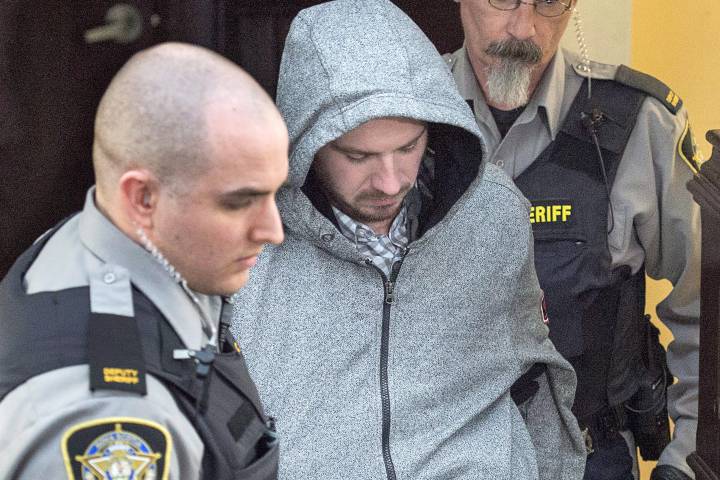A Montreal-born yoga instructor who was found dead in her Halifax home had “defensive injuries” on her hands and fingers, a medical examiner testified Tuesday at Nicholas Butcher’s second-degree murder trial.

“It looked as though an altercation or struggle had occurred at the scene,” Dr. Marnie Wood told the 14-member Nova Scotia Supreme Court jury.
Wood said she went to Kristin Johnston’s home on Halifax’s outskirts on March 26, 2016, hours after the 32-year-old woman was found dead on a blood-soaked bed in the master bedroom.
She performed an autopsy on Johnston’s body the next day.
READ MORE: Police, toxicologist testify at Butcher second-degree murder trial in Halifax
Wood said Johnston’s death was caused by sharp force injuries to her neck that led to a fatal amount of bleeding, and that the injuries were consistent with being caused by a single-edge blade.
The trial has heard that a steak knife was found on the bed next to Johnston’s lifeless body.
Wood, who was qualified to give opinion evidence at the trial, said there were injuries to Johnston’s right and left jugular veins. She estimated that with those injuries, Johnston would have died within “five minutes or less.”
Wood also described injuries on her fingers and the palms of her hands as “defensive.”
She agreed with defence lawyer Peter Planetta that there’s no way to determine the type of knife used to cause the injuries.
“Exactly which single-edged blade and the exact size of that blade is impossible to determine with certainty,” she said.
The jury has heard that officers were called to the scene in Purcells Cove after Butcher called 911 and told the dispatcher he had killed his girlfriend and tried to kill himself. He also told the dispatcher he had cut off his hand.

Get daily National news
Police have testified that a mitre saw was found in the bedroom next to an amputated hand.
RCMP Sgt. Adrian Butler, a blood stain pattern analyst, testified Tuesday about the gruesome scene inside Johnston’s home.
Butler said a large saturation stain found on the bed was consistent with Johnston receiving injuries to her neck and bleeding in the spot in which she was found – lying on her back.
“Saturation stains and hand transfer stains were located on the bottom half of the pillow,” said Butler, as the jury flipped through a book of crime scene photos.
“A minimum of two hand transfer stains were located on the pillow. A large, concentrated saturation stain – 60 centimetres by 121 centimetres in size – was located on the north side of the bed.”
Butler, an expert witness, said there were also hundreds of blood spatter stains on a pillow, comforter and the floor.
He said there were pools of blood on the bedroom floor near the mitre saw, along with hundreds of “cast off” spatter stains on the wall near the saw as well as stains on the saw’s handle.
It appears Butcher’s hand has been reattached, as it is occasionally visible in the courtroom as he sits at his lawyer’s bench during the proceedings.
WATCH: Jury in Nicholas Butcher trial hears 911 call

The jury has heard that the businesswoman had just shut down her yoga studio and spoke to friends about ending her relationship with Butcher.
The 36-year-old man, a graduate of Dalhousie University law school who worked with Young Drivers before his arrest, has pleaded not guilty.
Earlier Tuesday, RCMP Cpl. Christian Hochhold testified that he analyzed a cellphone that belonged to Johnston.
READ MORE: Exhibits from Nicholas Butcher murder trial show blood stains on Kristin Johnston’s porch
Hochhold, an expert in the forensic analysis of computers and other electronic devices, said he extracted a “plethora” of data, including emails, text messages, photos and Facebook messages.
Those messages included exchanges Johnston had with friends in the weeks, days and hours before her death.
Hochhold told the jury it would take “an extreme amount of dedication” to alter the text messages sent and received on the phone.







Comments
Comments closed.
Due to the sensitive and/or legal subject matter of some of the content on globalnews.ca, we reserve the ability to disable comments from time to time.
Please see our Commenting Policy for more.